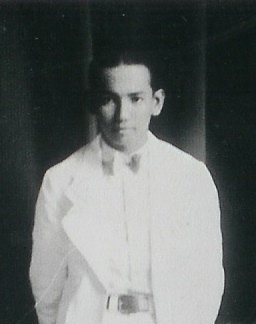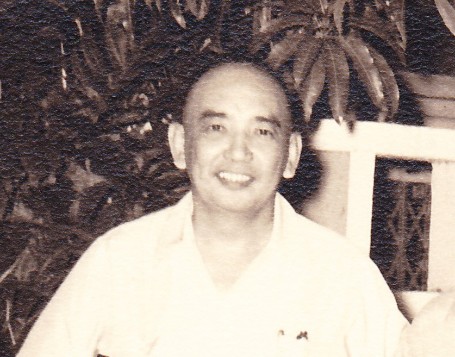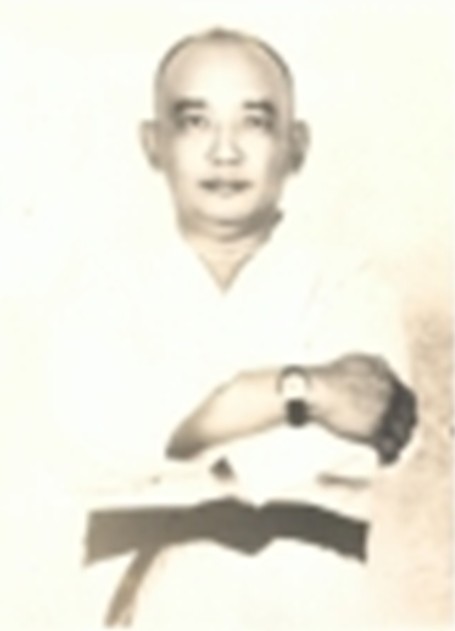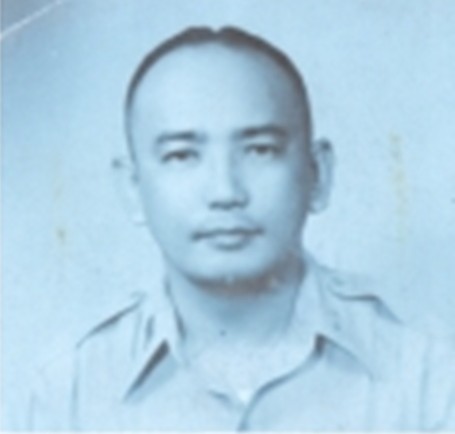    |
JOSE G. LUKBAN (1911-1985) 1939-45 - Brigadier General -U.S- Philippine Armed Forces Silver Star Receipient , U.S. Forces, Pacific, G.O. No. 184 (1945) 1954-1966 - Director - National Bureau of Investigations Jose G. Lukban was born in Manila on March 19, 1911. He was the seventh of eight children in the second marriage of Gen. Vicente Lukban to Paciencia Gonzales. He studied at Mapua High and continued to obtain his Bachelor Degree at Far Eastern University. In 1933, he obtained his Law Degree at Far Eastern University. Shortly thereafter, he joined the newly formed Philippine Scouts of the US Armed Forces as part of their legal counsel. Fearing the impending outbreak of war in the Region, Gen. Macarthur, consolidated all commissioned officers to build up the defense of the Philippines. Jose Lukban was then commissioned as Lieutenant as part of the newly formed 73rd Regiment. When the Japanese forces invaded the Philippine Islands in 1941, over a period of 6 months, the Philippine Scouts and the US Army were slowly being pushed into the Bataan Peninsula and eventually Corrigedor. Lt. Lukban, was in-charge of rear guard action for the retreating forces. So gallant was his efforts that he was named in the book “Filipino Heroes of World War II” by Col. Uldarico Baclagon and recognized by the United States Army by being awarded the Silver Star after World War II. When the Bataan Peninsula fell to the Japanese, he was captured and forced onto the famous “Bataan Death March”. He eventually escaped and joined the guerilla forces. He was captured by the Japanese while conducting his guerilla activities. During his capture, he was tried and sentence to be beheaded. However, during his supposed execution, he noted that every time the officer lowered his samurai sword, he felt the dull edge of the sword on his neck. Apparently, the officer conducting the execution would turn the blade of the sword every time he lowered his sword. The officer did this to scare Lt. Lukban into a confession and give away the whereabouts and activities of his fellow guerillas. Lt. Lukban prevailed and did not concede to his executioners and eventually escaped. During his guerilla activities, Lt. Lukban help organize some of the local Muslims to fight against the Japanese. The local Moros knew of his father, Gen. Vicente Lukban, efforts during the Philippine Insurrection and voluntarily joined the fight. One of the local Moro leaders named him an honorary “Datu”. At the end of World War II through 1949, Lt. Col. Lukban , was given the task of defending the Japanese, Lt. General Shigenori Kuroda, Commander for all the Japanese Imperial Forces in the Philippines from 1943 to 1944, for War Crimes that occurred in the Philippines. http://www.lawphil.net/judjuris/juri1949/mar1949/gr_l-2662_1949.html He cleverly disguised the Japanese General giving him a mole on his cheek while witnesses were identifying the General as the one who committed the war crimes. At the end of the trial, he removed the mole to try to disqualify the witnesses as falsely identifying the Japanese General. Upon his retirement from the Armed Forces, he was promoted to Brigadier General. In 1954, he was appointed by President Ramon Magsaysay to head the National Bureau of Investigation (NBI). He held this position until 1966, when he was replaced by Jolly Bugarin by the then incoming President Ferdinand Marcos. During his tenure, he was known as an honest, responsible and uncorruptable man. He made a reputation as a defender of corruption in his cases in “Stonehill vs Diokno “ and the “Ted Lewin” fiasco duly noted on Time Magazine “The Plug-Ugly American” dated December 21, 1959. He was a staunch defender against communism in the South East Asia Region and befriended Indonesian President Soekarno as noted in the issue of Life Magazine “Communism a Dirty Campaign” dated Nov 26, 1965. In recognition of his achievements, the NBI awards its top agent every year with the Jose G. Lukban Award. Jose Lukban, was passionate about Judo. His interest started prior to the onset of World War II and continued throughout his life. In 1954, he formed the Philippine Amateur Judo Association which eventually became the All Philippine Judo Association in 2003 and the Philippine Judo Federation in 2008. He received a Citation of Merit in July 1964 from the Kodokan Judo Institute in Japan for promoting Friendship between Japan and the Philippines. When Jose Lukban retired from Judo, he had a 5 dan-degree black belt under him making him a master in the Art of Judo. In the late 1970s, Jose Lukban migrated to the United States. When Governor Ronald Reagan ran for office of the President of the United States, Jose Lukban led the fight and was an activist to allow US Citizenship for all former Filipinos who served and fought with the United States Army during World War II. The law was passed in July, 2002 by President George Bush under Section 329 of the Immigration and Nationality Act. Subsequently, In 2009, President Obama enacted repayment of 7.2 Billion Pesos to all Filipino World War II veterans in the Filipino Veterans Equity Compensation Provisions of the American Recovery and Reinvestment Act. Jose Lukban died in June 2, 1985. He is buried at the St. Joseph Cemetery in San Pablo, California alongside his wife Esperanza. He father three daughters; Nina, Lydia and Maria Luisa.
|